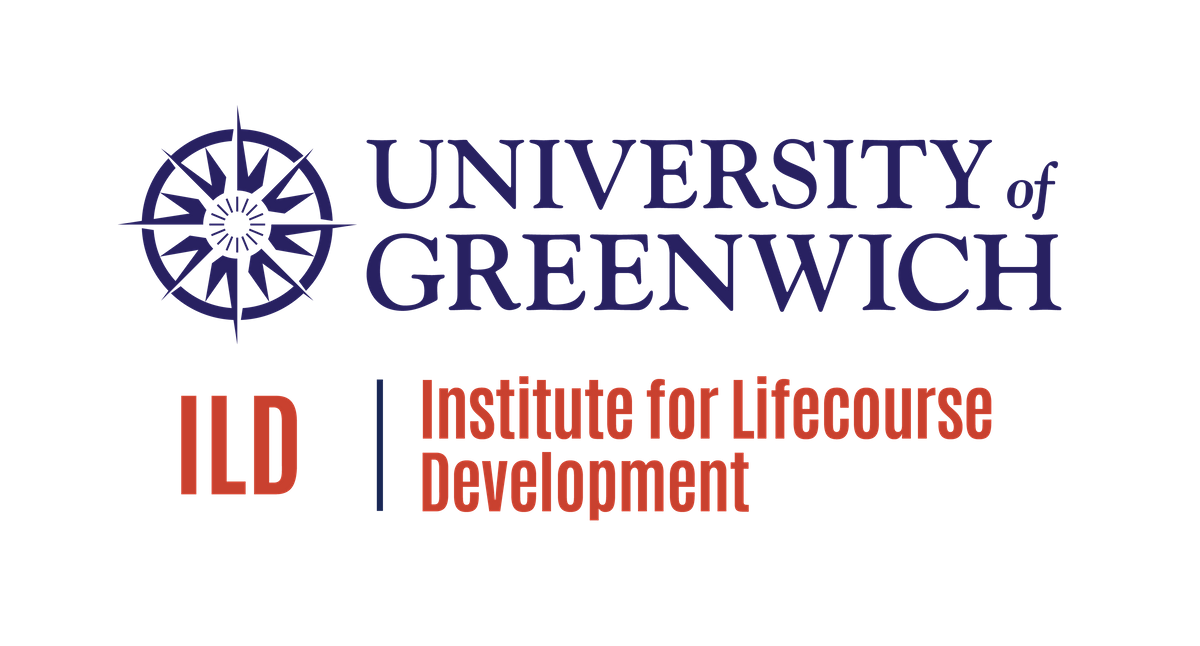ILD Equality Diversity and Inclusion Research Conference
Schedule
Wed Dec 08 2021 at 04:00 pm to 07:00 pm
Location
University of Greenwich | London, EN

About this Event
The conference is an annual celebration of research, practice and policy innovations related to issues of equality diversity and inclusion. We showcase the work done within the Institute for Lifecourse Development and we also have an exciting external speaker.
Our goal is to build awareness of the broad array of research, practice and policy actions being undertaken by the Institute for Lifecourse Development to address and improve issues of equality, diversity, and inclusion in our society.
Speakers:
Dr. Denise Miller, Dr. Charmaine Brown & Dr. Ryan Essex
University of Greenwich, Institute for Lifecourse Development
Prejudice, Discrimination and Racism: Experiences of Higher Education Staff.
Abstract: The objective of this study was to examine institutional practices that support and enable racial inequality in Higher Education (HE). Although the study is centred one Higher Education Institution, two main conclusions can be drawn. First, racism affects the career trajectory of BAME HE employees in ways that are not experienced by their White counterparts. Second, the experience of BAME employees is disproportionately negative and aversive. The implication is that HE leaders must give racial equality, diversity and inclusion greater priority.
Alan Dudley
University of Greenwich, Institute for Lifecourse Development
LGBT+ staff experience & institutional policy.
Abstract: Knowledge of LGBT+ staff experience is limited and the institutional diversity data on record tells us little about individual experience. Through research we aim to advance understanding of LGBT+ and community ally staff experience at the university. Achieving this requires engagement with the community, exploring unique identities and perspectives – more to surveying perceptions across the wider staff population. Organisational principals, practice parameters, behavioural expectations, and response to misconduct, are all outlined within strategies, guidance directives and policy documentation. Reflecting on preliminary research findings, this talk considers analysis of institutional policies and their impact on the lived experience of minority groups.
Dr. Amena Amer
University of Greenwich, Institute for Lifecourse Development
The dance of recognition: identity negotiation among white British Muslims.
Abstract: Based on in depth interviews, the paper explores how white Muslims in Britain not only identify themselves, but negotiate and manage their expressions of religious, ethnic and national identities in relation to the ways in which they are positioned by others. The paper uncovers the dynamic and complex ways in which white Muslims do this through performative means. They do so by consciously and agentically manipulating levels of recognition through the presence or absence of identity markers, as well as resisting boundaries based on difference and instead reconstructing, redefining and widening the parameters of inclusion
Dr. Julia Morgan
University of Greenwich, Institute for Lifecourse Development
Invisibility and Gypsy, Roma, and Traveller Students in Higher Education
Abstract: Gypsy, Roma (Romany/Romani) and Traveller communities are under-represented in higher education in the UK. In this talk Julia will present some initial findings from a qualitative research project with students from these diverse communities to explore their experiences of higher education. Biehl's Foucauldian focus on ‘‘technologies of invisibility’’ will be utilised to explore how particular groups are made 'invisible' in and to universities.
Prof. Russel Luyt
University of Greenwich, Institute for Lifecourse Development
How can men contribute to gender equality and interact with/within feminist spaces.
Abstract: I make a case, during this presentation, in support of men contributing as, or allied to, change agents for gender equality. The task of contributing toward gender equality and interacting with/within feminist spaces is not without difficulty. How do we, for example, refrain from reproducing normative masculinity in these men’s work while at the same time motivating them; balancing a focus on men and women in their work, in order to not marginalise or even undermine women’s projects and their funding; as well as these men undergoing (potentially painful) self-reflection concerning their own and personal gender and sexuality politics and experiences whilst fostering their continued engagement. In doing so, men need to be able / willing call to out negative practices among other men, participate in pro-feminist or allyship to women's initiatives, and look critically, on an ongoing basis, at their own behaviour and the impact it may be having on others and in particular women.
Prof. Danny Dorling
University of Oxford, School of Geography and the Environment
Picking seven children to represent the UK
Abstract: Suppose you were asked to pick seven children, seven children typical of the UK today, who represented its diversity, its injustices and its inequality. How would you go about deciding which children to pick? The children can be constructs, they need not be actual children, and so you do not have to worry too much about putting seven children on seven pedestals. But what would their families be like, how many would be poor and wealthy, where might they go to school and what might their future life chances look like? This talk is about trying to carry out just such an exercise.
Schedule:
4.00-4.10 Welcome
4.10-4.25 Dr Denise Miller, Dr Charmaine Brown & Dr Ryan Essex
Prejudice, Discrimination and Racism: Experiences of Higher Education Staff.
4.25-4.40 Alan Dudley
Institutional policy and EDI strategy.
4.40-4.55 Dr Amena Amer
The dance of recognition: identity negotiation among white British Muslims.
4.55-5.00 Short Break
5.00-5.15 Dr Julia Morgan
Invisibility and Gypsy, Roma, and Traveller Students in Higher Education
5.15-5.30 Prof. Russel Luyt
How can men contribute to gender equality and interact with/within feminist
spaces.
5.30-5.40 Short Break
5.40-6.40 Prof. Danny Dorling
Picking seven children to represent the UK
6.40-6.45 Short Break
6.45-7.00 Panel Discussion
For further information please email [email protected]
Data protection statement:
The information that we are collecting from you will be used by the University of Greenwich to administer this event. We will create a delegate list of attendees, and will keep a record of your attendance. We will also use the contact details provided to email you with further details about the event.
The details you have provided will also be held by the university and used only to inform you about the Institute for Lifecourse Development - including future events which may be of interest and our ITE partnership newsletter. To remove your details from our record, please contact us at [email protected] or unsubscribe in future emails.
Where is it happening?
University of Greenwich, Park Row, London, United KingdomEvent Location & Nearby Stays:
GBP 0.00
